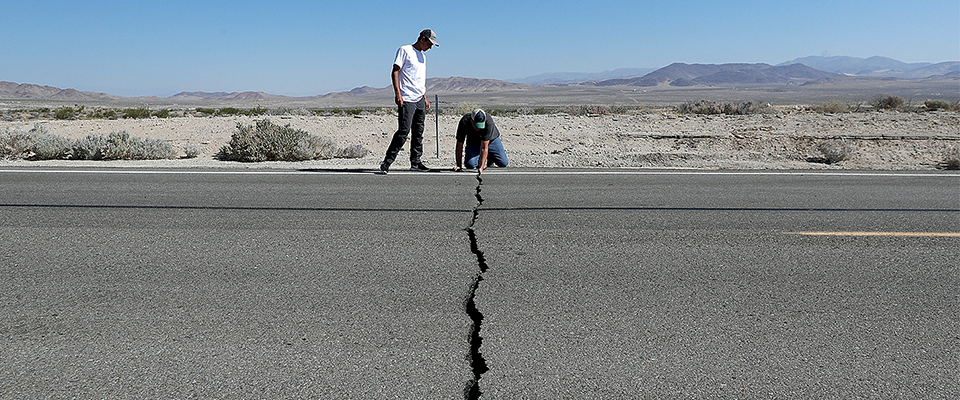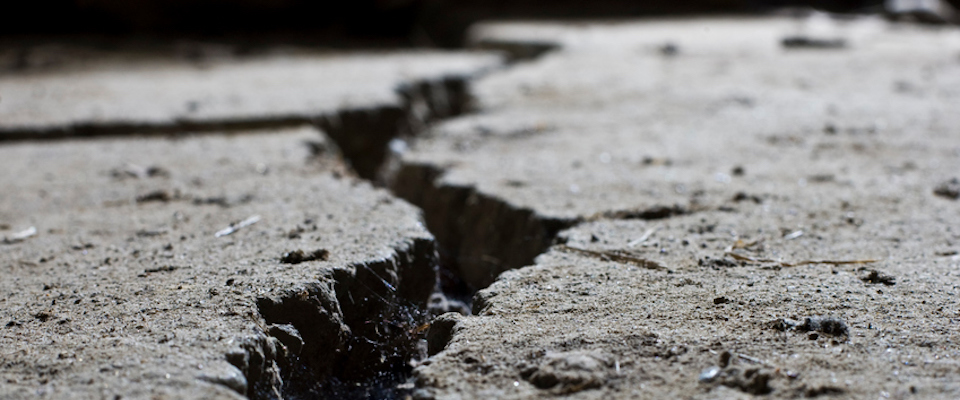Rude Awakening
Millions in the Bay Area were rattled awake early this morning by a magnitude 4.4 quake epicentered just north of the Claremont Hotel, which puts it smack dab on the Hayward Fault—the same one that runs under Cal’s Memorial Stadium. The fault line is a fact of life on the Berkeley campus—something we observed in this story about Bishop George Berkeley and the nature of reality—and the amount of destruction it may cause when the inevitable “Big One” occurs could depend on a number of factors, as contributor Tim Lesle noted in this sobering piece for our long-ago Apocalypse Issue. If the hills are soaked by winter rains, for example, landslides could be a major issue. If it occurs after a parched summer and the Diablo winds are blowing, then fire will loom as the greater danger.
As of yet, unlike Japan, the U.S. has no earthquake early warning system, but scientists at Berkeley have helped to build a free Android app called MyQuake, which can detect magnitude 5 earthquakes at distances of up to 10 kilometers. It won’t give you a lot of advance warning, mind you, but perhaps enough to safely drop, cover, and hold on.
Leading Role
Better Call Saul star Bob Odenkirk plays reporter (and former Berkeley Graduate School of Journalism dean) Ben Bagdikian in Steven Spielberg’s new movie, The Post. The film recounts the story of the Washington Post’s publication of the so-called Pentagon Papers, a secret dossier of U.S. intelligence on the Vietnam War that was leaked by former military analyst and longtime Berkeley resident Daniel Ellsberg.
In a Newsweek interview, Odenkirk says of Bagdikian, “he was a great dude.”
“Ben was less of a personality than [Bob Woodward and Carl Bernstein] who became famous for their work. In Ben’s book, he talks about his early career and how he learned to disappear as a journalist, to blend in, so that people will be forthcoming. That was his approach, and in most of my scenes I tried to hang in the background. He also had [Post editor] Ben Bradlee’s ear and he knew it, and he didn’t want to take advantage of that. He waited for his moment.”
As it happens, Bagdikian, who died in 2016 at age 96, is not the first Berkeley J-School professor to be depicted on the big screen. Lowell Bergman, who runs the school’s Investigative Reporting Program, was memorably played by Al Pacino in the 1999 film, The Insider.
Saving Chocolate
For our latest issue, we asked UC Berkeley biologist Jennifer Doudna about the power of CRISPR, the revolutionary gene-editing tool she pioneered, and what applications of the tool were most exciting to her. She said that while the technology may one day be harnessed to eliminate diseases like sickle cell anemia and cystic fibrosis “by removing them entirely from the human genome,” we would probably see the most immediate impact on agriculture. “The technology gives us the ability to make specific changes to crops that improve their longevity and nutritional value.”
And lo, now comes news that the Innovative Genomics Institute, a partnership of UC Berkeley and UC San Francisco, is working with Mars, Inc. to edit the DNA of cocoa trees to better withstand threats like fungi and viruses, exacerbated by global warming. As the Doudna Lab’s Kevin Doxzen tells Confectionary News, while earlier headlines predicting the “extinction of chocolate” were greatly exaggerated, it’s true that global warming is affecting the health of many crops including staples, such as cassava, rice, and wheat. He adds that, while you could use traditional plant breeding to achieve the same ends, it would take years and years of laborious work. “With CRISPR, you can do it in less than one year.”





















